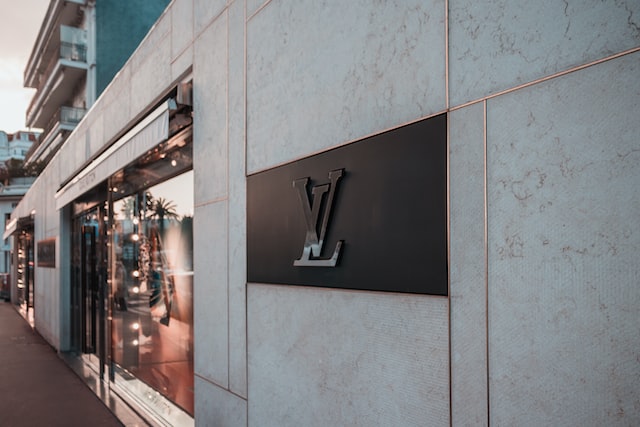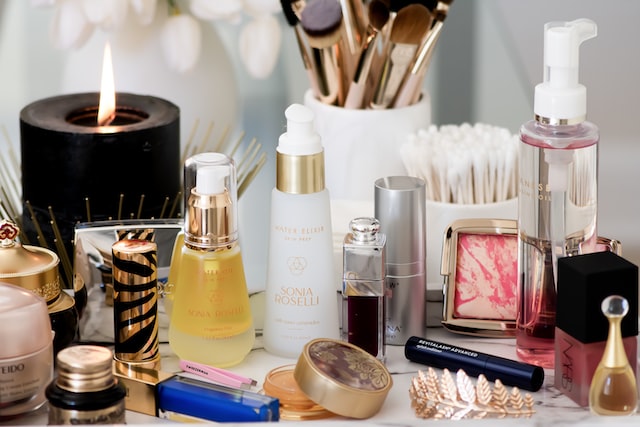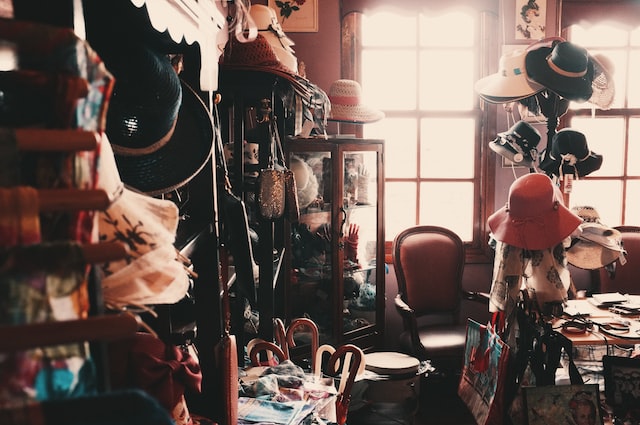Polarization of consumption trends! “Luxury Products” and “Second-hand Goods” Growing in a Recession
With inflation rising worldwide with economic recession at the same time, the market is concerned that consumer confidence will be reduced. However, people’s willingness to spend money is in fact not decreasing, even while they are cutting costs.
Among the trend, “luxury products” and “second-hand goods” are showing particularly surprising growth.
In this article, we will discuss the reasons why luxury and second-hand goods are growing in the face of the economic downturn in recent years.

Luxury products, a comfort during recession
According to Cathrine Jansson-Boyd, a psychologist specializing in consumer psychology, one of the most important but unconscious factors when consumers decide to purchase a product, is “how consumers want others to treat them”. Since financial inconvenience can lead to negative feelings, consumers tend to spend more money than usual on products and services that can cheer them up.
Scholars agree that consumers’ craving for status symbols is stronger than usual during recessions. In addition, the decrease in disposable income affects consumers’ emotions, making them more likely to make irrational decisions.
According to data from American consulting firms Bain & Company and Altagamma, sales at boutiques calculated at constant exchange rates grew by 15% in 2021-2022, with 60% of growth coming from price increases on core items such as handbags.
Luxury sales are concentrated among the wealthy.” Claudia D`Arpizio, a partner at Bain & Company, points out. “The disposable income of the wealthy is less affected by economic downturns. Top 2% of the population pyramid account for 40% of current luxury goods sales, which increased from 35% in 2009.”
Also, globally, Bain estimates that luxury sales will increase dramatically by 60% between 2022 and 2030, and that consumers in India, South Korea, and Mexico will become wealthier, creating a total of 10 million new luxury customers each year.

“Lipstick effect”, simulating the sales growth
“Lipstick effect” is a behavioral trend in which relatively inexpensive services and consumer goods, such as lipstick, sell well in times of economic downturn.
The recession does not diminish people’s impulse to consume, but because consumers’ incomes are declining due to the economic downturn, they will refrain from expensive consumption, such as real estate and automobiles, and will purchase comparatively inexpensive goods and services instead.
During COVID-19, which people are encouraged to stay home, “cooking at home” has become a form of entertainment. This lead to a surprising growth in cooking-related products. According to the “2020 Spring Festival Home Economy Big Data” published by China’s Meituan, searches for baking and pastry products increased 100-fold, yeast sales grew 40-fold, and dumpling skin sales grew more than 7-fold.
UK blogger Christy Llewellyn, who launched a new nail-tip brand in 2022, observed that after news about the cost of living (including electricity and transportation costs) would rise in the new year broke, sales of the brand increased significantly. “I particularly wanted some small happiness during these difficult times, for example coffee and mascara. In contrast, people will refrain from expensive consumptions such as cars and shoes,” Llewellyn pointed out.
Meanwhile, Alex Gooch, a British baker who supplies bread to hotels and restaurants and owns two cafes, says his income has not been affected by the recession, despite of the inflation causing a sustained rise in costs. “For example, customers are still spending 10 GBP to buy 2 kg of pain au levain. The recession won’t stop people from spending money at their favorite cafes or meeting up with friends. I don’t think they will give up no matter what happens, because those lifestyle is part of their happiness,” Gooch said. “Bread or coffee only costs about 6 GBP. Consumption at cafes is cheaper than the others, but it’s an important reward in ones life.”

Growth of Secondhand Goods, Supported by Sustainable Trends and the convenience of Online Platforms
On 21 November 2022, Carousell, a buy/sell transaction platform, released their results of survey about Hong Kong consumers’ spending habits during the recession. There were more than 80% of consumers tend to buy more second-hand goods during the recession. Especially for respondents over 45 years old, 86% buy second-hand goods once every three months averagely. Overall, the survey results indicate that consumers’ attitudes toward second-hand goods are being softer than during economic booms.
In the same survey, 62% of respondents indicated that they would purchase more second-hand goods during recession, with 90% having “neutral” and “positive” attitudes toward second-hand goods. Speaking of purchasing second-hand goods, the most common product types that come to the respondents” mind are “furniture/interiors” and “hobbies/games”. For respondents aged 45 years and above, 76% said they would consider second-hand furniture. This indicate that consumers are interested not only in the portable second-hand goods, but also in larger sized ones such as furniture.
For reason why sales of second-hand goods have not been affected by the recession but growing instead, more than 90% of respondents in the same survey stated that “the appearance and performance of second-hand goods is not much different from the new ones”. In addition, second-hand goods are suitable to the trend of sustainability and cost-effective, which are just the factors that consumers most interested nowadays.
Cost-effectiveness is the most important reason for Hong Kong consumers to buy second-hand goods, with 53% of respondents saying that they can save at least 1,000HKD each year by buying second-hand goods instead of the new ones, and about 10% saying that they can save at least 5,000HKD each year.
As for the reason for second-hand goods, 81% of respondents answered that the goods are “still in well condition”. This indicates that they do not want to waste while the second-hand goods are still usable, and that they make using second-hand goods as part of their eco-life practices.
Regarding the convenience of purchasing second-hand goods, more than 60% of respondents said that buying/selling transaction platforms such as Carousell have improved the flow of transactions purchasing second-hand goods. Among respondents aged 45 years and older, more than 70% felt that buying second-hand goods was more convenient than before, indicating that an efficient transaction flow for older consumers is driving the acceptance of second-hand goods.
It is generally recognized that economic recession affect sales of all types of products, but the data suggest that this may not be the only result.
As now the COVID-19 restrictions are being lifted, customers can experience more about the products’ advantages through physical stores and face-to-face workshops. This will surely be effective in retaining consumers for the businesses.
On the other hand, it is important to make use of the fact that people are becoming more familiar to the tech lifestyle due to the COVID-19 pandemic and to raise awareness of the products through the convenience of online platforms. In addition, incorporating “sustainable” elements, which is a global trend in recent years, can create a more attractive impression for products.
MAY Planning provides support for businesses entering the Hong Kong market. We offer a wide range of business solutions, including the establishment of corporations and stores, and effective ways to contact local consumers. Please feel free to contact us if you are seeking a solution to your situation.


